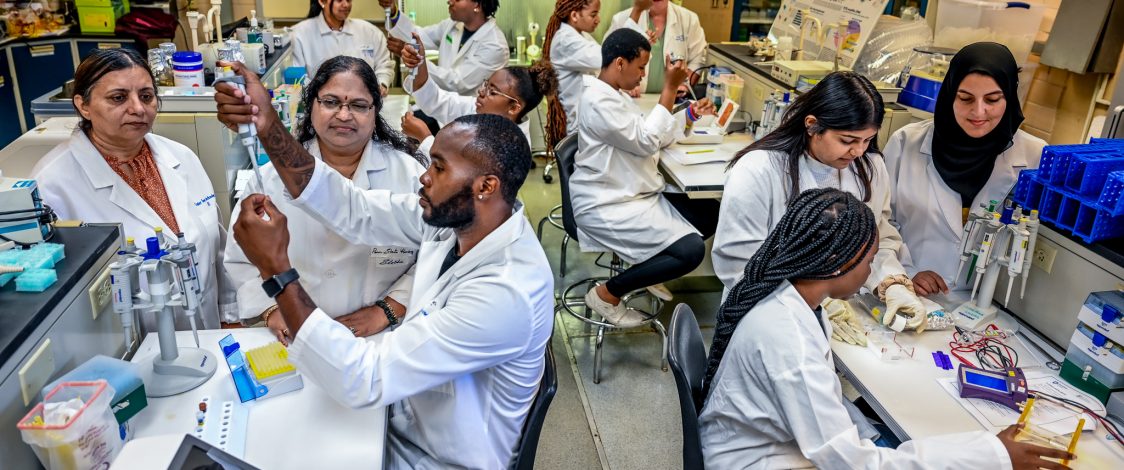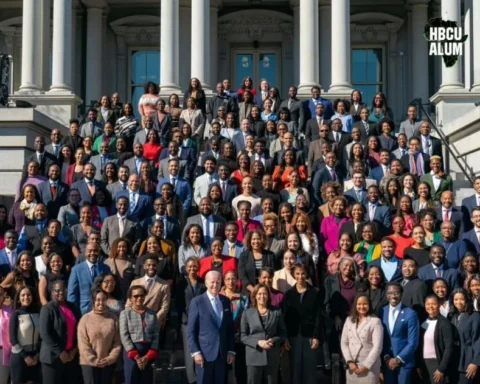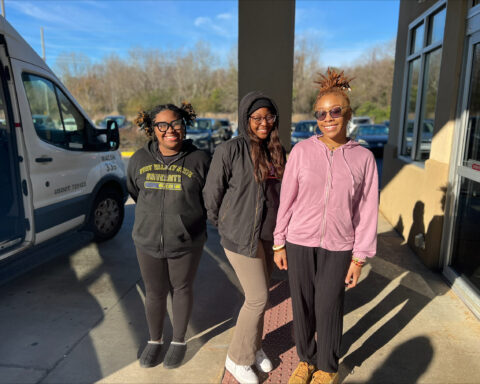Six students studying plant science-biotechnology and biology at Fort Valley State University participated in a CRISPR-based summer workshop to learn more about DNA sequences and molecular biology techniques
A group of Wildcats who participated in a summer workshop are better prepared for the classroom now that the fall semester has begun on Fort Valley State University’s campus.
The three-day workshop introduced five plant science-biotechnology students and a biology student to clustered regularly interspaced short palindromic repeats (CRISPR). This latest technology allows scientists to enable gene editing and refine gene expression in living organisms, including plants, animals and humans. Sarwan Dhir, Ph.D., an FVSU professor of plant biotechnology, collaborated with Sairam Rudrabhatla, Ph.D., and Shobha Potlakayala, Ph.D., with the Department of Biology and Sciences at Pennsylvania State University – Harrisburg to organize the educational experience.
Students engaged in preparatory steps such as nutrient media preparation, bacterial transformation, plasmid DNA isolation (CRISPR-derived constructs for plant genetic transformation) and genomic DNA extraction. Other activities included polymerase chain reactions (PCR), bioinformatics to analyze gene editing laboratory results, and DNA staining and visualization. All students received a certificate for completing the workshop.
Dhir believes early hands-on exposure to advanced laboratory experiments benefits FVSU’s first plant science-biotechnology majors.
“Witnessing their confidence grow in conducting hands-on lab activities using advanced gene editing techniques is rewarding,” he said. “As an underrepresented group in STEM, it is imperative that minority students receive opportunities to learn from the expertise of leading scientists. Research such as CRISPR/Cas9 will positively impact the medical field to agricultural biotechnology.”
Makala Butts, junior plant science-biotechnology major, said the workshop helped her understand the basics of CRISPR before going into the lab.
“We worked with E. coli bacteria and extracted DNA,” the 20-year-old said. “There are certain things we know now to look for on our collection plates.”
Justin Jordan, also a junior plant science-biotechnology major, said the workshop helped increase his confidence since it was his first time participating in this type of research.
The two students also look forward to applying this knowledge professionally as they further their research.
Butts, who presented a poster on transient gene expression for FVSU’s Research Day, won second place. “I have experience from all these techniques under my belt for when I do eventually go to graduate school for horticulture or biotechnology or to a biotech firm,” she said.
The Brunswick, Georgia, native is interested in herbology.
“I love plants. My grandmother instilled this in me with gardening. My eventual end goal is to own a plant nursery,” she noted. “I want to have medicinal herbs, natural alternatives, which people can come in to purchase.”
Jordan aspires to own a hemp business, making various oils. The 18-year-old Wildcat football player from Stone Mountain, Georgia, learned about the plant science-biotechnology program from former Athletics Director Anthony Holloman, Ed.D.
Jordan and Butts agreed that the support at FVSU is invaluable. “I never thought I would be doing this,” Jordan admitted. “I’ve learned a lot.”
Butts added, “This has been an eye-opening experience.” Her parents are FVSU graduates, but she had no clue that the historically Black university offered a plant science program.
“You gain new friends and outlets,” she said. “Dr. Dhir ensures you have that exposure and all the help you need so that you can succeed. Still, you must govern yourself. You must put the time in.”





